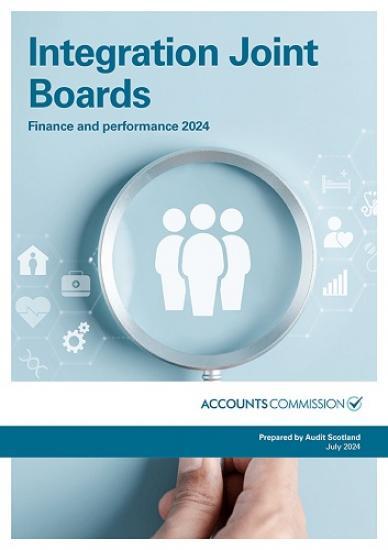Health And Care Services In Scotland See Growing Financial Troubles
25th July 2024

Audit Scotland has today published a report that shows the finances for the Integrated Joint Boards face a huge deficit.
Community health and social care faces rising unmet need.
Managing the crisis is taking priority over prevention due to the multiple pressures facing the bodies providing these services.
Scotland's Integration Joint Boards (IJBs) plan and commission many vital community-based health and care services.
One in 25 people in Scotland receive social care, with this expected to rise sharply due to an ageing population. Seventy-six per cent of people receiving health and social care are aged 65 and over. By mid-2045 the number of people aged 65 and over is set to grow by nearly a third.
IJB funding has decreased by £1.1 billion (nine per cent) in real terms to £11 billion in 2022/23, with the funding gap set to triple in 2023/24. While there are examples of innovation, IJBs are increasingly having to make unsustainable savings through, for example, not filling staff vacancies and using their financial
reserves.
Difficulty in filling posts also mean that vacancies are at a record high. Nearly half of services report vacancies, a quarter of staff leave jobs within their first three months and there is continued turnover in senior leadership.
Taken together, these pressures on IJBs mean that the current delivery and funding of services is unsustainable, and system change across a range of vital public services is needed to address the challenges.
Angela Leitch, Accounts Commission member said, "Community health and social care faces unprecedented pressures and financial uncertainty.
"The pressures facing social care and community healthcare are complex, with health inequalities widening. These issues can't easily be resolved, and the situation is getting worse. We're already at the point of increasing levels of unmet need and tightening eligibility to access services.
This could be impacting people's quality of life but data quality is insufficient to fully assess this.
"Integration Joint Boards can't tackle these challenges alone - they need the support of councils, health boards, Scottish Government and other partners to help them make the urgent changes that are needed now. Without this collaborative approach to change, the pressures facing Integration Joint Boards will get
worse."
In this Account Commission briefing about Scotland's Integration Joint Boards (IJBs), we report that community health and social care faces rising unmet need and managing the crisis is taking priority over prevention due to the multiple pressures facing the bodies providing these services.
IJBs plan and commission many vital community-based health and care services.
People
One in 25 people in Scotland receive social care.
Expected to rise sharply due to an ageing population - 76% of people receiving health and social care are aged 65 and over.
By mid-2045, the number of people aged 65 and over is set to grow by nearly a third
Performance
Where data is available, nationally there has been a general decline in performance of services and outcomes for people.
Data quality and availability is insufficient to fully assess the performance of IJBs and inform how to improve outcomes for people who use services with a lack of joined- up data sharing.
Care
Community health and social care faces unprecedented pressures and financial uncertainty. We have not seen significant evidence of the shift in the balance of care from hospitals to the community intended by the creation of IJBs.
Finances
IJB funding has decreased by £1.1 billion (nine per cent) in real terms to £11 billion in 2022/23. The funding gap is set to triple in 2023/24.
IJBs are making savings by not filling staff vacancies and using their financial reserves, but this is not sustainable
Staffing
Vacancies are at a record high. Nearly half of services report vacancies. A quarter of staff leave jobs within their first three months. And there is continued turnover in senior leadership.
IJBs provide a wide range of services. Each IJB differs in terms of the services they are responsible for and local needs and pressures. The Act sets out the services that are required to be delegated to the IJB as a minimum, with the largest areas including the governance, planning and resourcing of the following:
• Adult and older people social work
• General practitioner services
• Services for adults with physical disabilities
• Mental Health services
• Drug and alcohol services
• Allied health professional services
• Pharmaceutical services
For much more detail on several aspects go HERE
